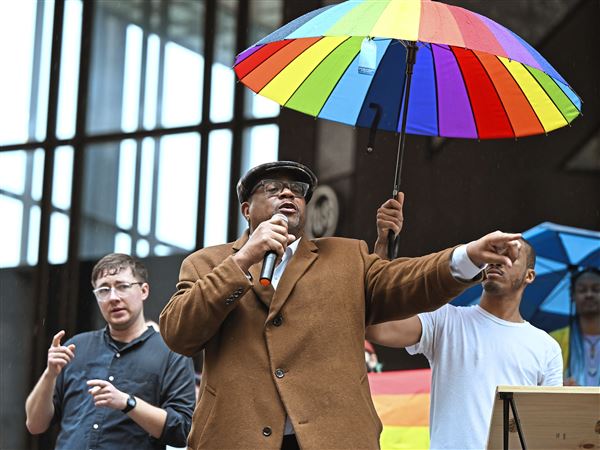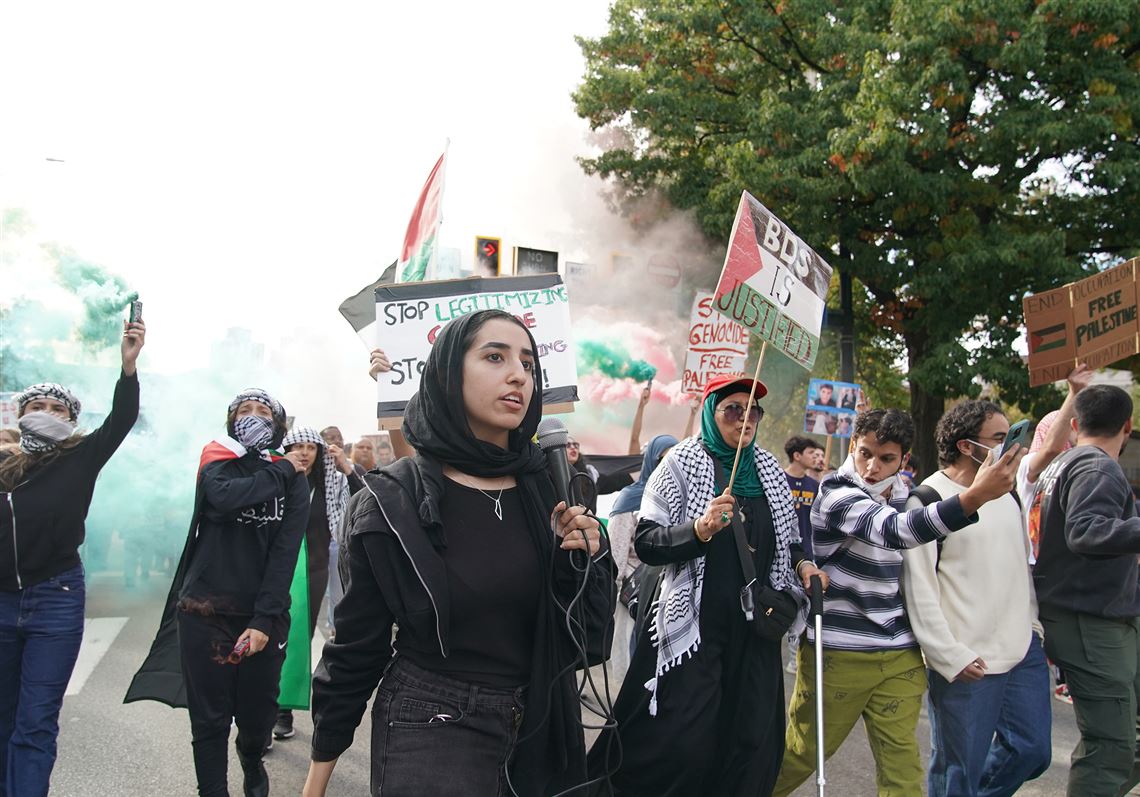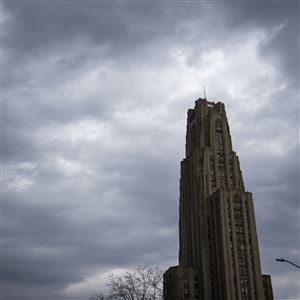The American Civil Liberties Union is suing the University of Pittsburgh on behalf of its recently suspended pro-Palestine student group, alleging that Pitt has repeatedly suppressed the group’s free speech rights.
In a 220-page lawsuit filed on Tuesday, the ACLU claims that over the past year, Pitt has intimidated, retaliated against and hindered events sponsored by its Students for Justice in Palestine chapter.
The group was indefinitely suspended in March after the university said the chapter may have violated the Student Code of Conduct. That investigation is ongoing.
But the ACLU says the suspension, and other actions taken by Pitt against SJP since spring 2024, amount to First Amendment violations.
“The First Amendment requires that public universities respect students’ right to engage in vigorous debate about important issues of the day,” Witold Walczak, legal director of the ACLU of Pennsylvania, said in a statement. “Pitt’s suspension of the club’s status and other interference with peaceful advocacy is unconstitutional retaliation.
“The fact that the Middle East conflict elicits strong views is all the more reason that universities must maintain an environment that promotes the marketplace of ideas. Pitt cannot constitutionally put its thumb on one side of the debate by harassing and chilling the pro-Palestinian students’ side of that important discussion.”
The suit demands Pitt rescind SJP’s suspension and ongoing disciplinary proceedings against the organization. Filed in U.S. District Court, it names the university, Chancellor Joan Gabel, Dean of Students Marlin Nabors and four other Pitt administrators as defendants.
The university did not immediately respond to a request for comment.
SJP’s suspension last month stemmed from members’ actions during a Conduct Hearing Board deliberation in February, Pitt officials said in a March letter. The hearing was over a “liberation study group” hosted by SJP in December that school administrators said did not comply with university event policies.
But the ACLU argues that Pitt suspended the student group in retaliation after SJP members criticized Pitt’s treatment of the student group during the conduct hearing process. The suit says the study group hosted by SJP was constitutionally protected and non-disruptive.
The ACLU also claims that Pitt has and continues to suppress SJP members’ speech by denying the student group’s ability to hold events in public spaces on campus, and prohibiting the promotion of off-campus events after SJP’s suspension.
Prior to suspension, SJP frequently hosted protests, teach-ins, film screenings and other campus events in support of Palestine.
It was the sole registered student group on campus with the direct mission to support Palestine. Another student group, Pitt Divest from Apartheid, is not registered with the university.
In a statement, SJP said “advocating for an end to the slaughter of the Palestinian people requires that we be able to speak openly and without fear of retaliation.”
“Rather than uphold this right equally for all student groups, the University of Pittsburgh has crudely weaponized a vague, drawn-out and internally inconsistent disciplinary process as a cover to suppress our speech, in flagrant violation of our constitutional protections,” the statement reads.
The war in Gaza has seen campuses across the country divided since the Palestinian militant group Hamas launched a surprise attack on Israel in October 2023, killing hundreds of men, women and children and taking others hostage. Israel subsequently declared war on Hamas. The United Nations estimates that more than 45,000 Palestinians and 1,700 Israelis and foreign nationals have died in the conflict thus far.
College campuses have become hotbeds for protest and discourse surrounding the war. At Pitt, most pro-Palestine protests have remained peaceful, although one escalated into a tumultuous, occasionally violent scene that saw arrests, defacement of the Cathedral of Learning and numerous clashes between police and protesters.
In March, a majority of Pitt students who voted in the Student Government Board’s spring election pushed the university to disclose its endowment investments and divest any financial holdings from weapons manufacturers arming Israel.
And in December, Pitt announced it would develop a working group on antisemitism following a fall semester that saw tension increase over the war and the assaults of three Jewish students on or near campus.
First Published: April 15, 2025, 9:36 p.m.
Updated: April 16, 2025, 1:58 p.m.


















